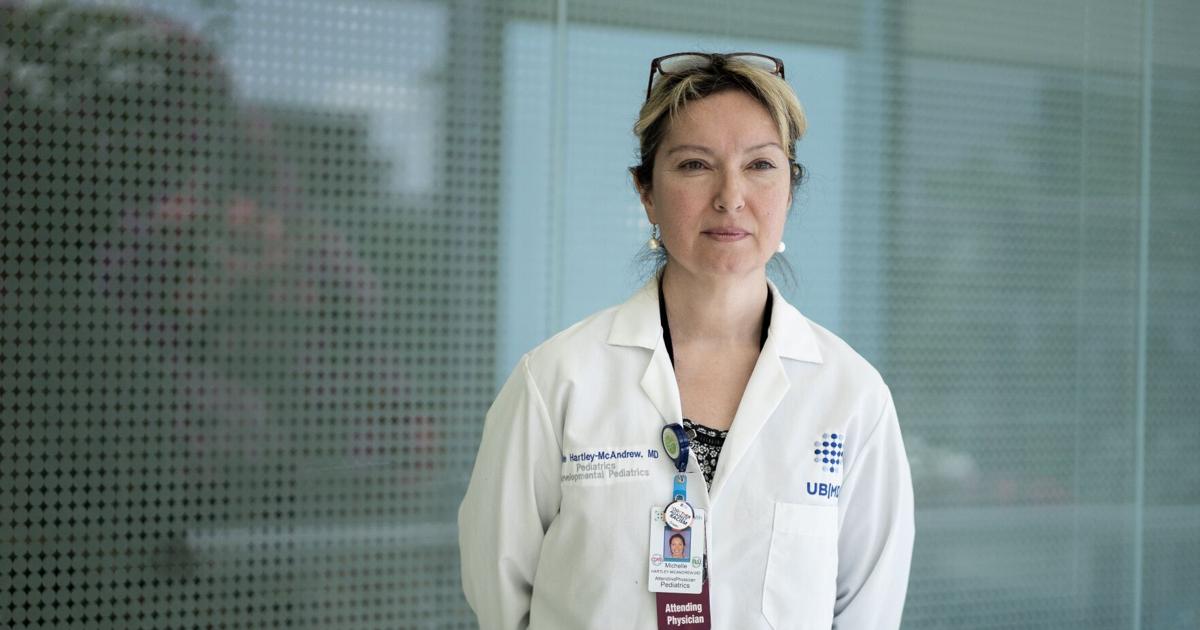New research suggests a hearing test may one day help diagnose newborns with autism, a condition so daunting to pinpoint that it typically takes years.
Researchers at two universities and the New York State Office for People With Developmental Disabilities pored through results of nearly 200,000 hearing tests on newborns and as they aged. They learned that babies later diagnosed with the condition had a split-second delay responding to sound compared to babies that did not.
That delay may help explain why newborns later diagnosed with autism and similar neurological conditions weather sensory storms that can include struggles with vision and movement, learning to talk and social communication, the scientists said.
The new research shows that repetitive and ritualistic behaviors associated with autism “are an adaptation of a system that is operating on different hardware and nevertheless, attempting to communicate with us,” said Dr. Elizabeth Torres, who led the study and directs the New Jersey Autism Center of Excellence at Rutgers University.
“Our results call us to rethink what autism really is,” she said.
The researchers also said their findings could be used to create a screening tool to identify those at risk “as early as possible, when the nervous system is rapidly changing and adapting to its environment, and the brain-body circuitry is forming,” Torres said in a Rutgers news release.
A University at Buffalo autism specialist cautioned that the study is observational and that it will take more research to learn if it’s possible to help distinguish autism and other neurodevelopmental conditions this way.
“Overall, it’s a very innovative and clinically relevant study,” said Dr. Michelle Hartley-McAndrew, medical director of the Children’s Guild Foundation Autism Spectrum Disorder Center at John R. Oishei Children’s Hospital.
“It could potentially strengthen early screening for autism, yet it doesn’t…
Read the full article here

Leave a Reply